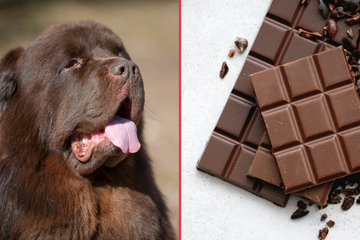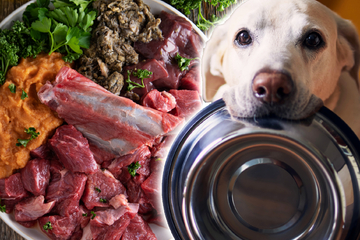Can dogs eat garlic?
Is there anything better than a little bit of garlic in your soup, spread on bread, or mixed into a salad? If your answer was, "No, there's nothing better," then your dog will likely disagree. Can dogs eat garlic?
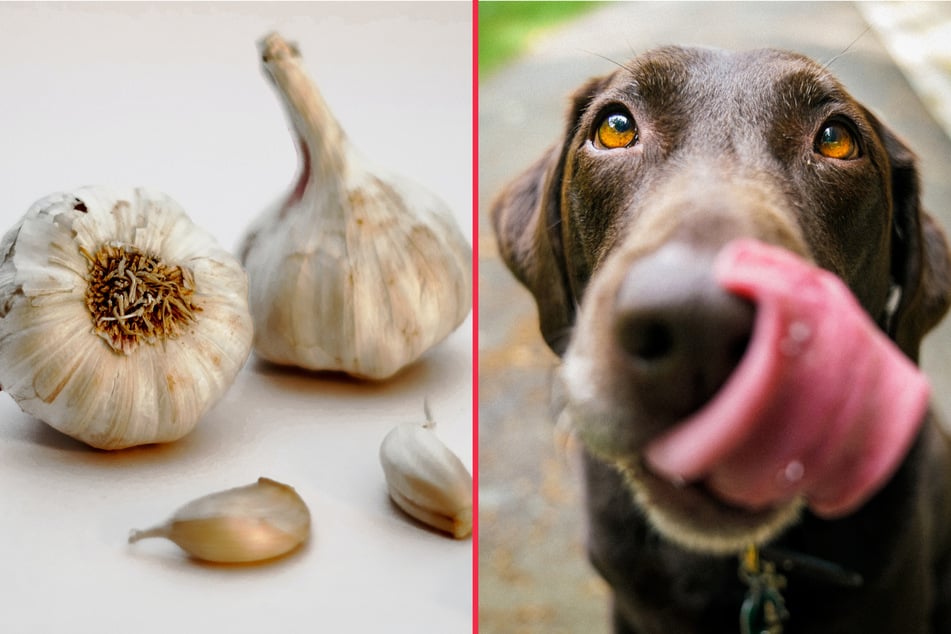
There are few things better than a nice and simple tomato-garlic salad with some toasted bread and a little olive oil. Not everything that we love to eat, though, is good for dogs. Some human foods are poisonous, and others will give our canine companions uncontrollable gas and some rather nasty symptoms.
As a result, and considering how wonderful and popular garlic is, it's important for all dog owners to know whether dogs can eat garlic. This dog guide will take you through just that. Can dogs eat garlic, is it poisonous and, if so, what are the symptoms and treatment of garlic poisoning?
Can dogs eat garlic?
Garlic is seriously toxic to all dogs, whether it is cooked or raw. Both cats and dogs are allergic to the entire allium class of plants, including onions, leeks, garlic, chives, and more. Poisoning by garlic is a very serious issue, as garlic is widely used when cooking and can often be a bit messy to prepare – leading to little bits being scattered here and there all over the ground.
Think of it like chocolate and dogs – just a complete no-go. Dogs should never be given garlic, no matter how little, and that goes for all foods that have garlic in them. In other words, don't give your dog a piece of steak seasoned with garlic powder, don't let it have a few spoonfuls of stew if that stew has garlic in it, and always be extremely careful to not let any garlic fall to the ground.
The biggest danger is that your dog will find a small piece of garlic once you have finished cooking and will guzzle it up without you knowing. This risk is especially high when compared to cats, as dogs are more likely to munch on scraps of just about everything. As a result, you should learn to recognize the symptoms of garlic poisoning in dogs.
Ultimately, the "too long, didn't read" of it is that you should never let your dog have garlic. It is toxic, dangerous, and will make your dog extremely sick and unhappy if it even manages to survive.
How bad is garlic for dogs?
Garlic is deadly for dogs if consumed in larger quantities (upwards of two cloves) and can therefore be determined as "really bad" for dogs. It causes severe issues with your canine companion's circulatory system and its body's ability to transport oxygen to various organs. This can quickly cause failures and has the potential to kill within hours of consumption.
Can dogs eat garlic powder? Is garlic powder bad for dogs?
Powdered garlic is arguably worse actually, because it is a more intensified version of garlic. Even a pinch of garlic powder has the potential to cause serious harm to your dog, delivering far more in a much smaller sample. In general, though, you should really avoid any kind of spice when feeding.
Remember that your dog should really just be eating dog food and, if you have to give it some human food, make it something plain. Beware of pieces of meat that were seasoned with garlic powder or any kind of curry as it will likely have spices in it that may disagree with your beloved canine companion in one way or another.

Symptoms of garlic poisoning in dogs
Luckily for you as the dog owner, though not so luckily for your suffering dog, our canine companions will display a vast assortment of rather obvious symptoms if they get garlic poisoning. If you notice these symptoms, it is quite possible that your beloved doggo has eaten something it shouldn't have.
These are the symptoms of garlic poisoning in dogs:
- Severe lethargy and tiredness
- Sudden collapse and a loss of motor skills
- Jaundice, yellow skin
- Bloodshot eyes and typical allergy symptoms
- Extremely high heart rate
- Gums and tongue changing color
- Anemia
- Difficulty breathing, panting, gulping, etc.
- Vomiting
- Diarrhea
If you are concerned that your dog has eaten some garlic, it's best to not even wait for symptoms. The list above is, instead, purely to provide important information to those who have no background knowledge of garlic poisoning or, perhaps, have not actively seen the consumption happening.
In the case that you see your dog eating garlic, go to the veterinarian. If you see some of the symptoms listed above, think about what you have cooked recently or whether there was any garlic readily available. Again, if the answer is yes to any of these queries, off to the vet you should go.
Be especially careful – garlic poisoning in dogs is a serious matter and not something to be light and easy about. Monitor the symptoms and act on them as soon as possible.
Important: Many of the symptoms of garlic poisoning in dogs are similar to the symptoms of other forms of poisoning, possibly via chocolate or something else. Keep that in mind, of course, but make sure to still take your dog to the vet.
Please also keep in mind that this may not be a complete list of symptoms. Different dogs will react differently to garlic poisoning.
Treatment of garlic in dogs
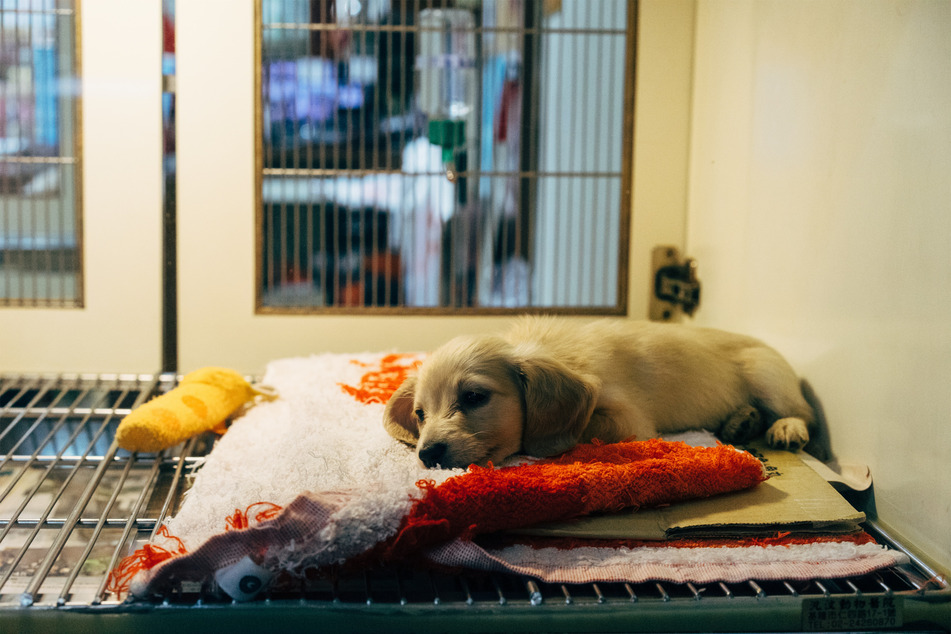
There is no option for home remedies or home treatment of garlic poisoning in dogs – if your dog eats garlic, you must take it to the veterinarian. This is one of those situations where trying to deal with it yourself will simply put your dog at risk of serious health complications and possible death, so it is very much not recommended at all.
We're not going to share with you any tips and tricks for dealing with garlic poisoning. Your dog will likely be given medication and, if the issue is particularly severe, may have to have its stomach pumped. In many cases, dogs will need to stay at the vet for a few days so that they can be observed and treated if things get particularly bad.
Make sure that you get your dog to the vet as soon as possible, though, as time is of the essence when it comes to any kind of poisoning. If it is the weekend or your dog's vet is closed, go to an emergency vet instead.
Why is garlic bad for dogs?
Garlic is bad for dogs due to the disulfides and thiosulfates found in all allium plants. These particular substances cannot be properly metabolized within your doggo and have the potential to quickly cause damage to its red blood cells. Because of this damage and the fact that red blood cells carry oxygen to your dog's body tissues, garlic can start to cause organ failure in your dog.
The process of red blood cell destruction is called hemolysis and will first show itself via anemia, which will swiftly cause skin discoloration among other symptoms. If particularly rapid, hemolytic anemia can swiftly become fatal, meaning that if your doggo consumes a large quantity of garlic, you don't have very long to save it.
Even extremely tiny amounts of garlic, the equivalent of maybe half a clove, can do significant damage to a dog's stomach. If you get above one or two cloves, however, that damage will spread through the body and require serious medical treatment.
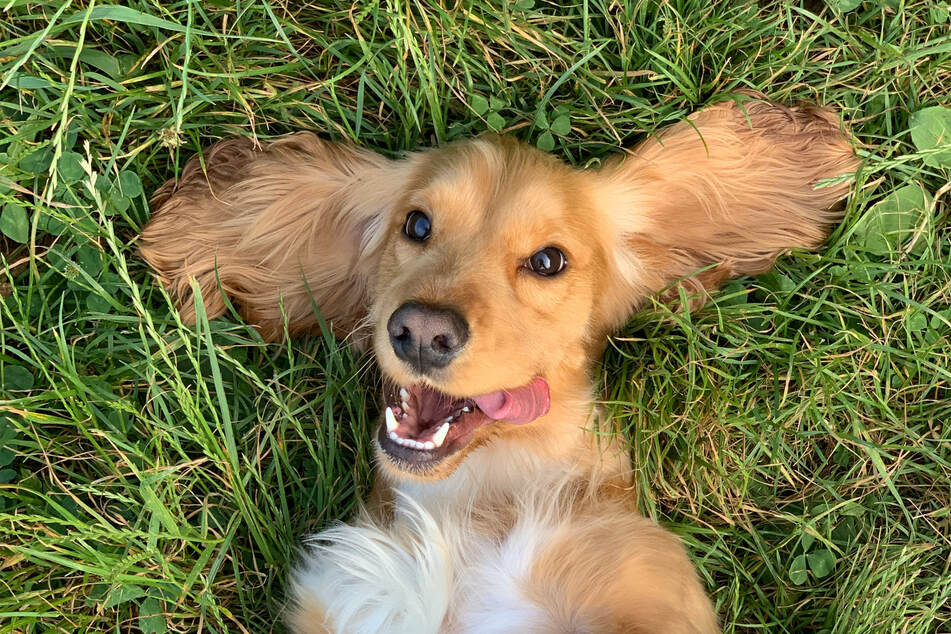
Garlic is dangerous for dogs and cats alike
If your dog eats garlic, it could potentially die, and the same goes if you give garlic to your beloved feline friend. Cats are also extremely allergic to garlic. Kitties will experience similar symptoms and maybe even death if they eat large amounts of the stuff. As a result, if you're a pet lover, keep those bulbs away.
It's also worth reiterating two things before we bid you farewell: 1) Cats and dogs are not only allergic to garlic, but to all members of the allium family; and 2) If your cat or dog shows signs of garlic poisoning, you must go to the vet. It's for their safety and, in many cases, their life.
Cover photo: Collage: Unsplash/Sanjay Dosajh & James Barker
